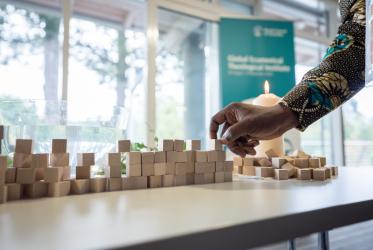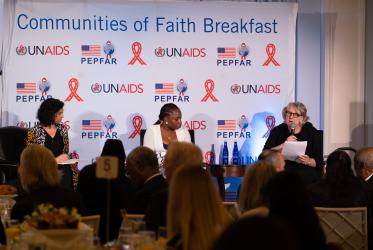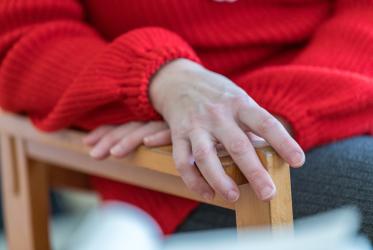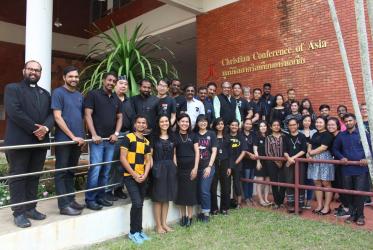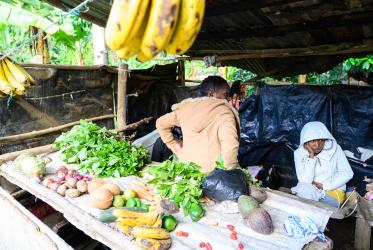Displaying 1 - 20 of 190
Faith Actors Reflect on Their Role in Reaching HIV Goals at ICASA
21 December 2023
WCC institute encouraged rethinking theology
23 November 2023
WCC Eco-School begins in Crete
15 November 2023
Regional theological institute will gather young people from Africa
02 November 2023
HIV and AIDS Civil Society Networks and the Faith Sector
Lessons Learnt from Strategic Engagement in India, Dominican Republic, Indonesia, and Jamaica
31 January 2023
On World AIDS today, tackling inequalities is a matter of justice
02 December 2022





